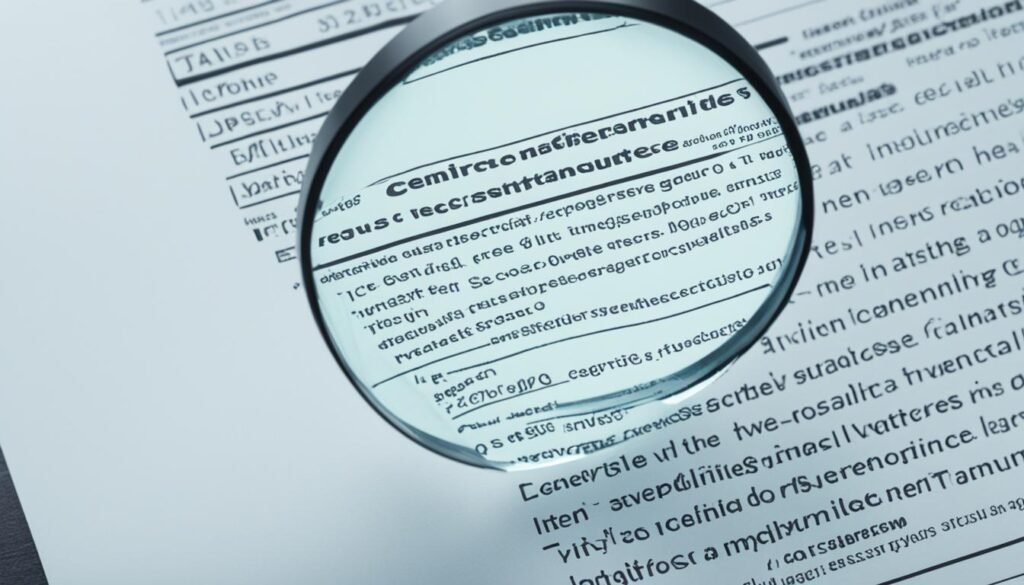Did you know that 100 franchise disputes were settled by the NSW Civil and Administrative Tribunal (NCAT) last year1? The legal world of franchising can be tough for entrepreneurs and business owners. Disputes can happen at different stages, leading to big financial and reputation losses2. But, knowing the law and how to solve disputes can help protect your franchise and reduce risks.
This guide covers important legal points, common disputes, and ways to fix them. It’s for both new and experienced franchise owners. We aim to give you the knowledge and tools to avoid and solve franchise disputes. This way, you can keep your business successful over time.
Key Takeaways
- Franchise disputes can happen at many stages, like before sale, during operation, and after ending the agreement2.
- Agreements have ways to solve disputes, like mediation, arbitration, or going to court2.
- Resolving disputes early saves time, money, and can protect your reputation2.
- Franchisors must follow strict laws, including the Franchise Disclosure Document (FDD) and labor laws3.
- Good communication, clear policies, and thorough training help prevent disputes23.
Understanding the Franchise Agreement: Key Terms and Clauses
The franchise agreement is key to the franchisor and franchisee’s relationship. It’s important to know its main parts to avoid future problems. This contract spells out what both sides must do and what they can expect from each other4.
Territorial Rights
One big part of the agreement is setting territorial rights. Franchisors give franchisees the right to work in a certain area. This protects their investment and stops franchisees from competing with each other4. Having clear boundaries helps avoid fights over market share or stealing customers.
Royalty Fees and Payment Structures
Money matters are also key in the agreement. This includes the initial fee, ongoing royalties, and extra fees for services or support4. It’s important that the financial parts are clear to the franchisee. They affect how profitable the franchise can be.
Termination and Renewal Provisions
The agreement also talks about how long the franchise lasts and when it can end or be renewed4. These parts affect the franchise’s future and stability. They set the rules for ending or extending the partnership.
Knowing the main parts of the franchise agreement is vital for both sides. It helps them work together well and avoid problems4. By looking at and discussing these parts, they can make sure the franchise does well.

“Franchisors should ensure that the agreement is drafted in a clear and concise manner, minimizing the potential for misinterpretation or ambiguity that can lead to disputes.”
Good communication and understanding the agreement’s terms are key for a good franchisor-franchisee relationship5.
| Key Franchise Agreement Terms | Description |
|---|---|
| Territorial Rights | Exclusive or semi-exclusive rights to operate within a defined geographic area |
| Royalty Fees | Ongoing payments, often a percentage of gross sales, made by the franchisee to the franchisor |
| Termination Provisions | Conditions under which the franchise agreement can be terminated by either party |
| Renewal Provisions | Terms and requirements for extending the franchise agreement upon expiration |
By understanding and negotiating these key terms, franchisors and franchisees can build a strong partnership. This helps avoid disputes and ensures the franchise’s success45.
Common Types of Franchise Disputes and their Causes
Franchise disputes can come from many complex issues. It’s key for franchisors to know the common types and causes. Breach of contract is often seen, like not paying royalties or crossing into another area6. Misrepresentation can also cause problems if the franchisor gave wrong or misleading info during the sale6. Intellectual property disputes happen when franchisees use trademarks or info they shouldn’t without permission6.
Other reasons for franchise disputes include franchises not doing well, changes in the area making territory issues, and one franchise encroaching on another’s area7. Franchisees might also be unhappy with how ad money is used, feel the franchisor doesn’t support them, or be upset about financial performance claims, trademark issues, or not being able to pay fees7. To lower these issues, it helps to screen carefully and train franchisees well6.
Having clear rules, checking on how well franchises are doing, and dealing with disputes quickly is key6. By knowing these common issues and their causes, franchisors can act early to stop problems. This helps make the franchise relationship better and more successful67.

“Proactive measures like thorough screening and comprehensive training can help reduce the likelihood of such disputes by ensuring franchisees align with the franchisor’s values and have a strong operational understanding.”6
Navigating Franchise Disputes and Resolutions
When franchise disputes happen, it’s key to deal with them fast and well to lessen their effect on the business. Franchisors should talk openly with franchisees, listen to their worries, and think about using mediation or alternative dispute resolution methods. These ways can be cheaper and less harsh than going to court for franchise litigation.
In tough cases, franchisors should get advice from skilled franchise attorneys. These lawyers can help lower risks, understand contracts, and decide the best steps to take8. Some contracts say that parties must try to settle a dispute within 21 days before looking into other ways to solve it9. Also, some rules might stop sharing info from these talks9.
When using franchise mediation or arbitration, both sides usually pay about half of the costs9. Laws might say that any legal action must happen in the same place as the business or in the same country9. This makes sure the issue is solved fairly, taking into account local rules and laws.
By talking openly, using alternative dispute resolution, and getting legal advice, franchisors can lessen the impact on their work. They can keep good relationships with franchisees and follow the law8. This way, they can solve problems better and cheaper, helping the whole franchise do well8.
“Effective dispute resolution is essential for the long-term success and stability of any franchise system.”
Effective Communication for Resolving Conflicts
Good communication is key to solving franchise disputes10. Franchisors need to talk often with their franchisees to quickly fix issues10. They can use regular meetings, newsletters, online forums, or helplines for this10.
Establishing Open Dialogue
When problems come up, talking openly is vital11. Franchisors should listen to their franchisees and share their views clearly10. This way, they can find solutions that work for everyone and stop disputes from getting worse11.
Active Listening and Transparency
Good communication means listening well and being open10. Franchisees should share their problems, and franchisors should talk about their choices and challenges. Sharing info and really trying to understand each other helps solve conflicts10.
Clear and honest talk helps franchisors deal with disputes better and keep good relationships with franchisees10. Talking openly, listening well, and being transparent is crucial for solving problems and keeping the franchise strong11.
“Effective communication is the lifeblood of a successful franchise system. It fosters trust, aligns expectations, and paves the way for collaborative problem-solving.”
Strategies for Preventing Franchise Disputes
Franchise disputes are common but can be lessened with the right steps. As a franchisor, picking the right franchisees is key. This means finding people who share your values and have the right expectations12. Also, making sure franchisees know how to run their business helps them succeed12.
It’s vital to have clear policies and guidelines to avoid confusion and fights12. Regular checks on how well franchisees are doing and giving them feedback can stop problems early12.
Thorough Vetting and Selection Process
Doing your homework before signing a franchise deal is crucial. It helps avoid issues that could hurt your money and reputation12. Choosing franchisees who fit your vision and have what it takes to do well can really help prevent franchise disputes.
Comprehensive Training and Support
Training and supporting franchisees well is key to their success and your franchise’s health. Giving them the right knowledge and tools helps avoid problems caused by confusion or not being ready12.
Clear Policies and Performance Evaluations
Having clear franchise policies is important for setting clear rules and avoiding fights. Regular checks on how well franchisees are doing can spot and fix problems early. This creates a better work environment12.
By taking these steps, franchisors can greatly reduce the chance of franchise disputes. This leads to a stronger and more successful franchise system121314.
Alternative Dispute Resolution Methods
When dealing with franchise disputes, mediation and other ADR methods are cheaper and quicker than going to court15. Mediation uses a neutral person to help both sides talk and find a solution they both agree on. This way, franchisors keep control and work with franchisees to find solutions15.
Mediation
Mediation is a top choice for solving franchise disputes16. It’s a flexible process that lets franchisors and franchisees solve problems together, often ending in a friendly way16. Through mediation, both sides can find new solutions and keep control, promoting teamwork and understanding.
Arbitration
If mediation doesn’t work, arbitration can be a next step16. Arbitration is a formal way to settle disputes with a neutral person making the final decision16. It’s less harsh than going to court but still helps franchisors solve problems and protect their interests.
Using these methods, franchisors can handle conflicts better and keep their franchise relationships strong1516.
Legal Considerations and Best Practices
Dealing with franchise disputes requires careful legal attention. Franchisors must follow the law, keep to contracts, and protect their unique ideas. Not doing so can cause big problems17.
It’s also key for franchisors to document and report franchise disputes well. Keeping detailed records helps manage these issues. Standardizing how you report and getting legal advice when needed is also important17.
Compliance with Franchise Laws
Franchise laws are complex and need careful handling. Franchisors must keep up with legal changes. They should make sure their agreements and practices follow the law. Getting advice from experts in franchise law can help avoid legal issues17.
Documenting the Dispute Resolution Process
Documenting franchise disputes is crucial. Franchisors should keep detailed records of all talks, negotiations, and steps taken. These records can be important in court or arbitration. They also help improve the franchise system17.
By focusing on legal rules and good documentation, franchisors can handle franchise disputes well. This approach helps protect their interests and keeps the relationship with franchisees strong1718.
| Key Franchise Dispute Considerations | Best Practices |
|---|---|
| Legal Compliance |
|
| Documentation |
|
“Effective documentation and legal compliance are essential for franchisors to navigate the complex world of franchise disputes and protect their interests.”
Conclusion
Handling franchise disputes and protecting your business is key for success in franchising19. Knowing the important parts of the franchise agreement helps. It’s also vital to talk well with franchisees and have plans for solving problems20.
Using methods like mediation and arbitration can protect your investment and help your franchise do well13. Following the law and getting advice from lawyers also boosts your franchise’s safety and success13.
Putting a focus on good communication, careful checking, and solid training for franchisees creates a team spirit13. This approach lowers the chance of disagreements. With the right legal help, franchisors and franchisees can face challenges together. This ensures their franchise keeps growing and doing well.
FAQ
What are the key terms and clauses in a franchise agreement?
What are the common types of franchise disputes and their underlying causes?
How can franchisors navigate and resolve franchise disputes?
What are the legal considerations and best practices for franchisors in managing disputes?
Source Links
- https://joneshardylaw.com.au/navigating-franchise-disputes-in-nsw-legal-rights-and-resolutions/
- https://www.lawworks.ca/franchise-disputes/resolving-franchise-disputes-for-franchisors/
- https://www.cloudhauslaw.com/blog/navigating-legal-issues-in-franchise-business
- https://www.reidellawfirm.com/franchise-agreement-key-terms-cheat-sheet/
- https://www.reidellawfirm.com/the-complete-guide-to-navigating-franchise-legal-challenges/
- https://www.reidellawfirm.com/managing-franchise-disputes-a-practical-guide-for-franchisors/
- https://harperjames.co.uk/article/franchise-disputes/
- https://ipworkslaw.com/franchise-protection-navigating-dispute-resolution-and-regulatory-compliance/
- https://www.accc.gov.au/business/industry-codes/franchising-code-of-conduct/when-things-go-wrong-with-a-franchise/resolving-franchising-disputes
- https://www.linkedin.com/advice/0/heres-how-you-can-navigate-challenges-franchising-industry-i6ptc
- https://www.reidellawfirm.com/what-is-the-process-for-resolving-disputes-with-franchisees/
- https://feldman.law/news/5-tips-to-avoid-franchise-disputes/
- https://michaeledwards.uk/dispute-resolution-strategies-for-international-franchise-conflicts/
- https://www.kppblaw.com/litigation-dispute-resolution/litigation-for-franchise-disputes/
- https://fastercapital.com/content/Dispute-Resolution–Resolving-Conflicts-in-Franchise-Agreements-Amicably.html
- https://www.reidellawfirm.com/how-to-resolve-a-franchise-dispute/
- https://kilcommonslaw.com/litigation/franchise-litigation-common-legal-issues-and-best-practices/
- https://1851franchise.com/best-practices-for-resolving-franchise-disputes-2725888
- https://www.gaffneyzoppi.com/blog/unravelling-franchise-disputes-common-causes-and-exit-strategies
- https://franchiseease.com.au/top-strategies-for-resolving-franchise-disputes/

